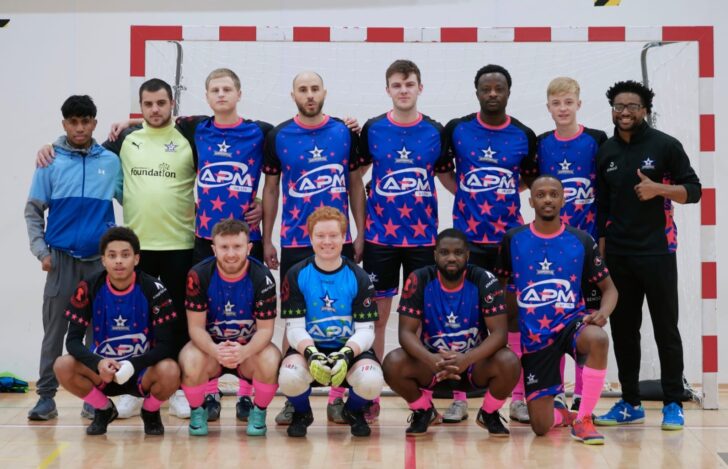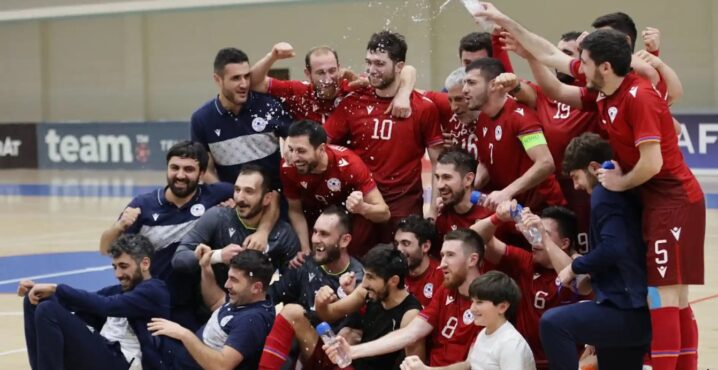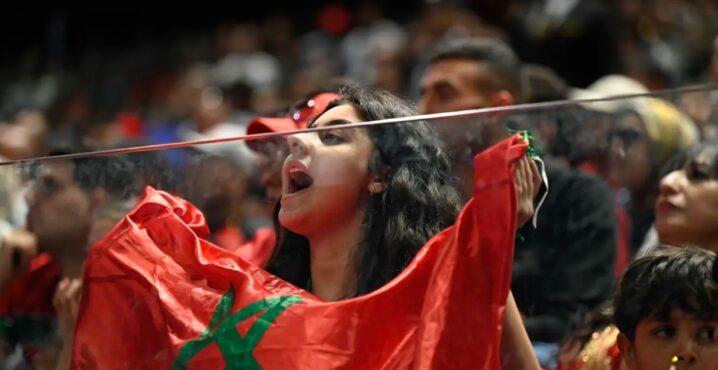Estimated reading time:5 minutes, 21 seconds
Coaching mixed-ability, multicultural teams requires more than tactics — it demands leadership that builds unity from diversity.
In today’s futsal world, it’s increasingly common to see teams composed of players from different cultures, speaking different languages, and possessing a wide range of skills. Coaching such a team presents challenges far beyond tactics and physical preparation — it demands new forms of leadership.
(Main picture: Multi-cultural futsal team, Afrimeripean Futsal Club, County Armagh, Northern Ireland source of the image: Afrimeripean Futsal Club Facebook page)
Mara De Ros, a former futsal player from Brazil now based in London, is currently a futsal coach in the UK. She has coached with the Brazil Development Academy (BDA) and now works with the Fraternity Without Borders (FWB) projects. Soon, she will also begin coaching in the Women’s Super Series Tier 1. As Brazil’s Sports Councillor Abroad and Coordinator of the Brazilian Women’s Sports Committee in London, her experiences offer thoughtful insights into how to create environments where every player feels valued and included.
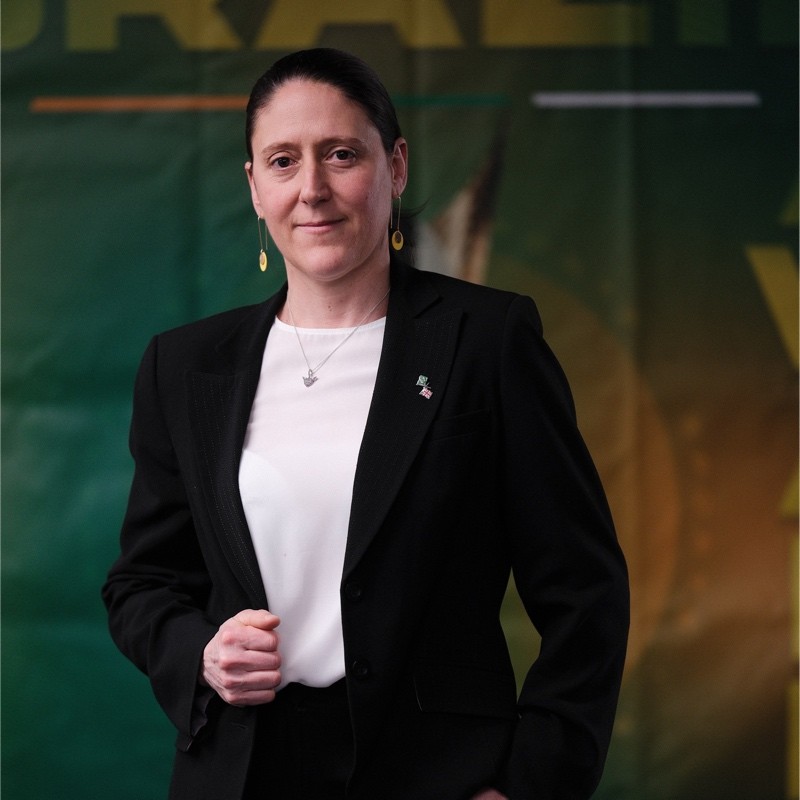
Mara De Ros – source of the image: LinkedIn
The ideas she shares reflect broader trends across modern sport, where building unity across cultural and skill divides is seen as essential to success. Research supports this approach: a systematic review published in Sports Medicine highlights that teams with strong shared values and clearly defined roles are better equipped to manage internal conflict and maintain cohesion. Figures like coach Pep Guardiola have long emphasized that embracing different identities within a team creates stronger, more resilient groups.
In a reflection Mara shared on LinkedIn, five key lessons emerged — principles that can inspire coaches at every level of futsal and beyond.
Building a Shared Culture
A successful team isn’t just about technical ability; it’s about connection.
Rather than asking players to fit into a rigid mold, it’s more powerful to create a culture that embraces their differences. Establishing shared values like respect, effort, and teamwork — while celebrating each player’s background — builds a stronger collective identity.
Small gestures, like players teaching each other greetings in their native languages or sharing traditions from their home countries, can have a big impact. Coaches managing international squads often note that players from diverse backgrounds bring additional strength, variety, and resilience to their teams.
Communicating Without Barriers
Clear, simple communication is vital when players come from varied linguistic backgrounds.
Demonstrations, visual aids, and peer explanations become key tools, minimizing the risk of misunderstanding and creating a more inclusive atmosphere. Actions often communicate faster and more effectively than words.
Research from organizations like TrueSport emphasizes that successful communication happens when coaches focus on clarity, honesty, and mutual respect — ensuring that no athlete is isolated due to language or cultural barriers. Inviting ideas from the team, especially from quieter players, helps all voices be heard and strengthens group cohesion.
Adapting for All Skill Levels
Training mixed-ability teams requires careful session design.
The best sessions allow all players to work together while developing individually. Beginners might receive more time and touches to build confidence, while advanced players face added tactical challenges to keep them sharp.
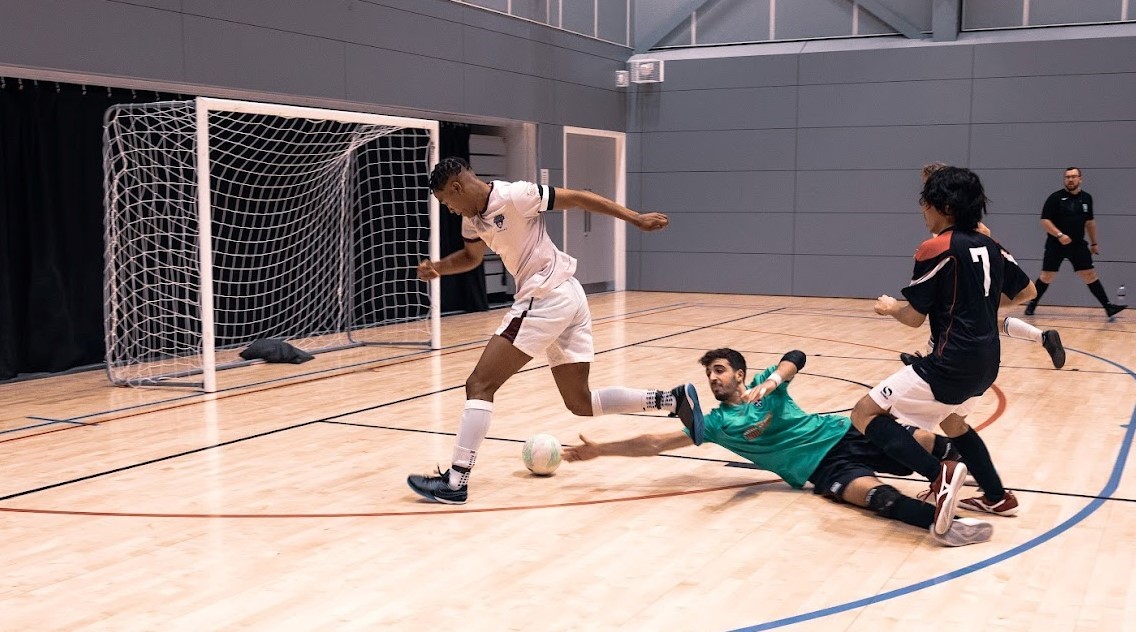
Durham University Futsal team – source of the image: Durham University website
Inclusive coaching expert Lizzie Edgecombe advises coaches to plan flexibly: thinking about how to adapt sessions when new or less experienced players arrive ensures no one is excluded or left behind. Adaptable drills and scalable challenges reinforce that every player’s development matters equally.
Empowering Every Individual
Leadership opportunities shouldn’t be reserved for a few.
Rotating responsibilities — such as leading a warm-up, mentoring a teammate, or organizing small group drills — gives every player a stake in the team’s success. Consistent personal feedback reinforces each individual’s growth and value to the group.
Australian footballer Sam Kerr summed up the team-first mentality when she said, “No one is bigger than the team. You win together, and you can certainly lose together.” Empowering players to lead builds ownership, resilience, and mutual respect — all crucial ingredients in diverse teams.
Celebrating Futsal’s Global Identity
Futsal’s strength lies in its universality.
Bringing in examples from around the world — showcasing brilliant plays from Brazil, Spain, Iran, Japan — helps players see themselves reflected in the broader game. It reinforces that talent has no single look, no single background.
When players recognize that their dreams are part of a global tradition, their sense of belonging deepens, and their ambition expands. Futsal becomes not just a sport, but a shared international language — one that welcomes all who are passionate enough to play it.
Shaping the Future of Coaching
The lessons raised here reflect a broader shift in how coaching is evolving. In an increasingly globalized world, the ability to build inclusive, empowering teams isn’t just a bonus — it’s a necessity.
Studies on diversity-focused coaching programs confirm that teams grow stronger when coaches embrace differences and leverage the unique perspectives of every athlete. In futsal and across all sports, building a strong, inclusive team culture is becoming the foundation for lasting success.
The future of futsal, and of sport more broadly, belongs to those who can turn diversity into a true strength. Conversations like the one Mara De Ros has started are critical steps toward that future — creating spaces where every player, no matter their background or starting point, has a place to grow, contribute, and succeed.
Special thanks to Mara De Ros for sparking this important dialogue in the futsal community
Organ Donation
Futsal Focus is a supporter of Dáithí Mac Gabhann and his family’s campaign to raise awareness of Organ Donation. We encourage our readers to learn more about Organ Donation: https://www.organdonation.nhs.uk/
Futsal Focus
You can read more articles about domestic futsal by going to the top navigation bar or by clicking here
If you like this article and would like to keep updated on Futsal news, developments, etc then you can now follow Futsal Focus via Google News by following our page which will send you an alert as soon as we publish an article so please click here and follow us on Google.
You can also keep updated on Futsal news, developments, etc then please submit your email below in the Subscribe to Futsal Focus option.
Follow Futsal Focus by clicking on Facebook, Twitter, or Instagram or on the social media buttons on the website



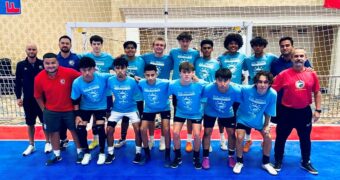
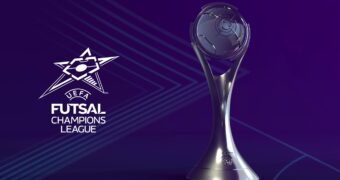

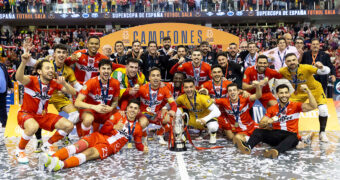
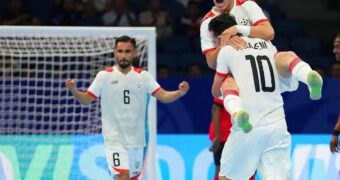
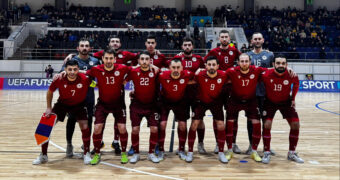
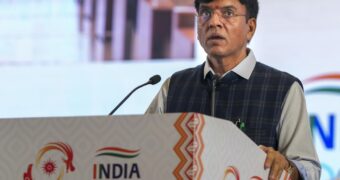
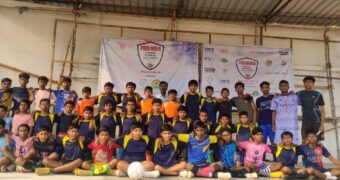





![Validate my RSS feed [Valid RSS]](https://www.futsalfocus.net/wp-content/uploads/2020/01/valid-rss-rogers.png)

